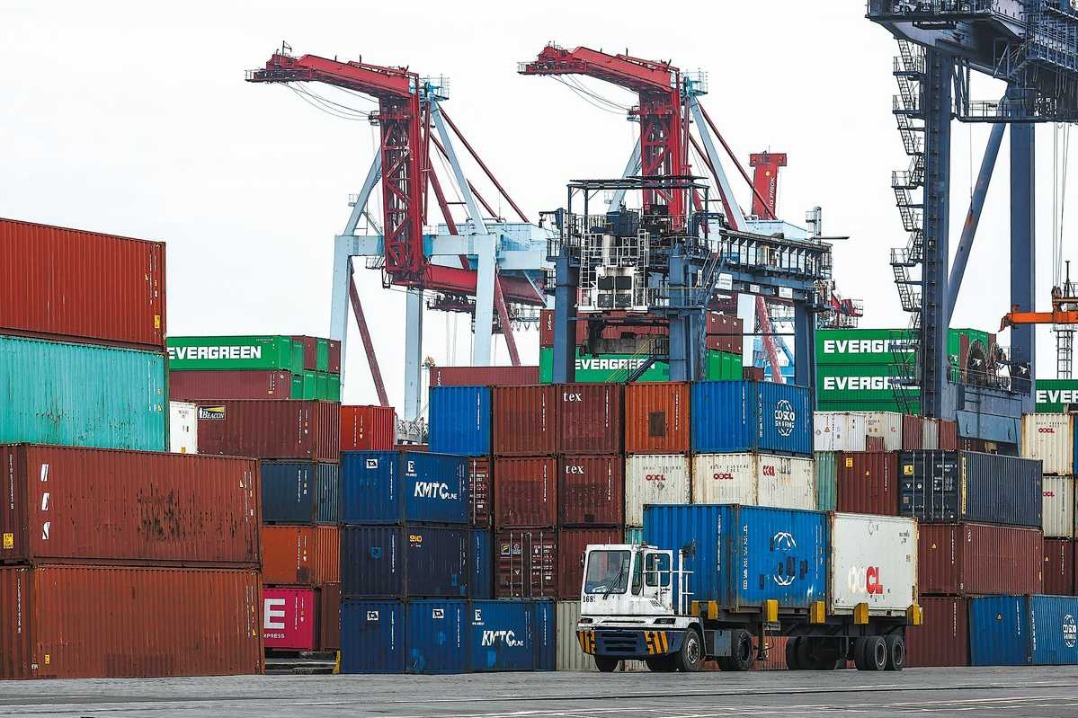ICE raids scare workers away


Under President Donald Trump's deportation policy, United States Immigration and Customs Enforcement (ICE) has been conducting aggressive raids into courts, churches, schools and workplaces. The actions have caused fear among immigration communities, and various analyses said that it will cost the country economically.
"With fear and uncertainty at its highest level ever among the immigrant community in Las Vagas, we have decided to temporally close Broadacres Marketplace out of an abundance of caution and concern for our community," read a post by the venue on its website.
Broadacres, established in 1977, is a sprawling market with a wide array of tented vendors. It also offers food vendors and live music on weekends. It has more than 10,000 reviews on Google maps to indicate its popularity.
The notice stated that the market operators "don't want any of our customers, vendors or employees to be detained" or to be "a beacon" for federal raids. "Stay safe," ended the message.
"People are scared, and they don't want to get caught by ICE. Everything is collapsing," vendor Marco Falcon told local TV station 8 News Now.
Falcon has been selling tools at Broadacres for 30 years. Now he's wondering what he is going to do during the closure, which doesn't have a specific reopening date planned.
"I will have to reinvent myself because I won't be able to run my business here and I don't know how long it is going to be closed," he said.
Hotels, restaurants, farms, food packing facilities and other sites where immigrant workers tend to concentrate have seen ICE raids across the country. In a recent raid on June 17, federal agents arrested 84 unauthorized immigrants at the Delta Downs Racetrack near Vinton, Louisiana.
According to an account by The Christian Science Monitor, even some immigrant workers with legal status stopped showing up at work. Farmer Nick Billman of Donna, Texas said none of his fieldhands have showed up since ICE raided two work sites near the Mexican border and arrested 12 immigrant workers for deportation.
"What's happening now is the rumors ... that even if you have a work visa or are working on citizenship, you're going to get rounded up with the rest of them," Billman told the Monitor. "It's making people sit at home."
On Monday, the Supreme Court granted Trump's request to deport migrants to countries other than their homeland.
Multiple analyses have pointed out that deportation will cost the US economically.
According to a study by the American Immigration Council, a non-profit organization, there are roughly 11 million immigrants without status in the US as of 2022 — 8.3 million of whom were active in the workforce. Another estimated 2.3 million have crossed the southern US border between 2022 and 2024.
Assuming that 20 percent of the undocumented population would "self-deport", AIC estimates that the ultimate cost of the total deportation operation would average $88 billion annually, or a total of $968 billion over the course of more than a decade. A large chunk of the money will be spent on building detention facilities.
The One Big Beautiful Bill Act, yet to be passed by the Congress, has allocated about $175 billion for mass deportation efforts between 2026 and 2034.
Besides putting a heavy burden on federal spending, mass deportation will lead to the loss of workers across US industries. AIC estimates that this reduction of population would lower US GDP by 4.2 to 6.8 percent and significantly reduce tax revenues for the US government.
According to AIC, in 2022, undocumented immigrant households paid $46.8 billion in federal taxes and $29.3 billion in state and local taxes. Undocumented immigrants also contributed $22.6 billion to Social Security and $5.7 billion to Medicare.
A study by Regional Supplemental Services, a large agency providing on-demand labors, concluded that a few industries will see diminished availability of immigrant labor, weakening employers' ability to maintain operations.
The most impacted industries by the mass deportation include agriculture — which depends heavily on H-2A visa holders and undocumented workers for fruit and vegetable growing — and construction firms, particularly in Texas, Arizona and Florida, where delays are already happening.
Healthcare, already struggling with staffing nurses and caregivers, will see a declining pool of foreign-born workers, the RSS analysis said.
Undocumented and migrant workers also make up a large share of workforces in hotels, restaurants, food processing, logistics and warehousing sectors.
"Historical parallels show that sudden labor force contractions due to immigration enforcement have long-term economic consequences," the RSS analysis said.
































